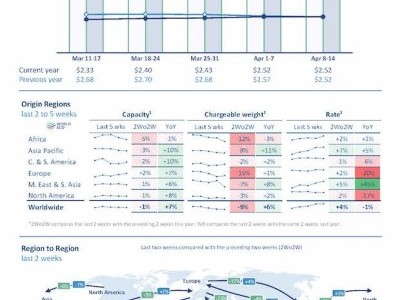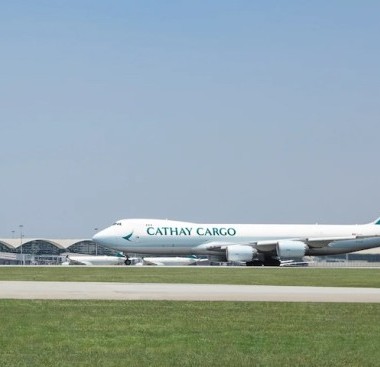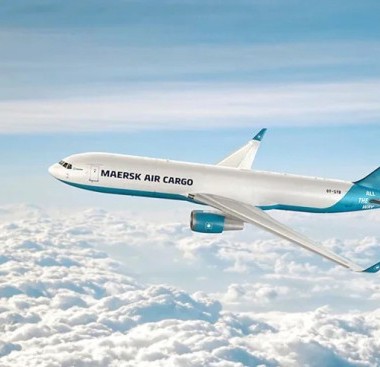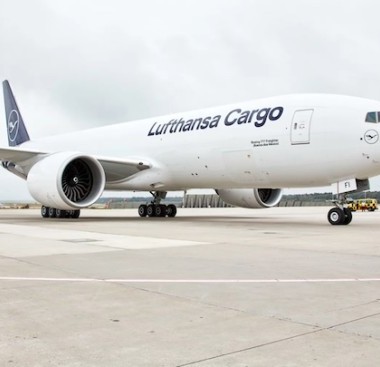Etihad Faces Tough Call on Air Berlin After Alitalia Bankruptcy
While Etihad Airways PJSC let Alitalia SpA slide into bankruptcy after workers spurned a restructuring plan, the Persian Gulf carrier is showing more patience with its other ailing European asset.
Hidden on page 154 of Air Berlin Plc’s annual report, published hours after Alitalia’s insolvency filing, was the revelation that Abu Dhabi-based Etihad had agreed to provide the German company with financial support for at least another 18 months, including 350 million euros ($382 million) of new funds.
That extra injection takes Etihad’s total exposure to Air Berlin close to 2 billion euros and suggests the Mideast company is not yet ready to abandon a partner which sits at the heart of a so-called Equity Alliance strategy that saw it build up minority holdings in carriers spanning Ireland to Australia.
The fresh funding—combined with Etihad’s assertion that “what has happened at Alitalia does not affect how we view any of our other equity investments”—represent some show of faith in Air Berlin, which has racked up net losses of 2.7 billion euros in little over six years and has net debt of 1.2 billion euros.
That’s especially so since James Hogan, Etihad’s chief executive officer since 2006, is preparing to depart in the second half, presenting an opportunity for a clean break in the group’s strategic approach.
“It’s imperative that Etihad defines a clear road map,” said aviation specialist Mark Martin, who heads the Dubai-based Martin Consultancy. “The time has come for Etihad to face tough decisions, either to stop the financial bleed or stay invested with a clear return-on-investment ultimatum.” That means deciding which assets have value and which are simply “deadweight.”
Mideast Slump
The question of whether to carry on funding its partners, most of which are profitable, was already under a review at Etihad and has become more pressing with Mideast demand stuttering as the lower price of crude clips bookings from the oil and gas industry and weighs on the wider economy.
Etihad devised its investment strategy after coming later to the Gulf airline party than larger rivals Emirates of Dubai and Qatar Airways Ltd. Seeking to fast-track its expansion the company sought out airlines that would feed more traffic through its home base while benefiting from a dose of management expertise and the synergies of being part of a bigger group. At the same time, though, it was taking on what were usually unprofitable concerns while being unable to assume full control because of caps on outside ownership.
On the face of it the situation at Air Berlin—in which Etihad has a 29 percent stake—appears dire, with Chief Financial Officer Dimitri Courtelis resorting to using an April 28 analyst call to reassure passengers that the company remained liquid and wasn’t about to cease flying.
Strategic Appeal
At the same time, CEO Thomas Winkelmann said that there are “fundamental differences” between Air Berlin and Alitalia, with management, labor unions and investors all generally “pulling in the same direction.” At the Italian company workers last week voted against job cuts tied to a 2 billion bailout plan, leading to the bankruptcy filing.
Air Berlin still has its strategic attractions, continuing to provide access to a German market which Gulf carriers have found tough to penetrate due to strict bilateral agreements, while its assets have already proved saleable.
As Air Berlin’s losses mounted last year, Etihad brokered a deal to lease 38 of the unit’s aircraft plus crews to Deutsche Lufthansa AG, where CEO Carsten Spohr has said he’d be interested in taking on more of the business on the right terms and if permitted to do so by antitrust authorities.
In a parallel deal, Air Berlin will also move about 20 jets to a leisure business to be formed between TUI AG and Etihad. That leaves the airline—which once touted itself as “hybrid” operator spanning business, low-cost and tourist flights—with only about 75 aircraft, or about half the former fleet, and will be much more focused, according to Winkelmann, a former Lufthansa executive.
“The old Air Berlin was an airline that attempted to do everything, that sought to be a jack-of-all-trades,” the CEO said. “That is clearly not possible.”
Similar Stories
Boeing’s cascade of mishaps fails to deter Wall Street backers
For a company that has been in crisis mode for as long as Boeing Co., the planemaker has some startlingly upbeat support from Wall Street.
View Article
GE Aerospace raises earnings goal on strong engine sales
General Electric Co. raised the full-year profit guidance for its aerospace business, driven by an increase in revenue from commercial aircraft engines and services.
View Article
UPS profit tops estimates as efficiency push counters costs
United Parcel Service Inc. reported profit higher than analysts’ estimates as the courier’s headcount management and restructuring of its delivery routes began to bear fruit.
View Article
JetBlue slides as Latin America woes weigh on sales outlook
JetBlue Airways Corp. said revenue this quarter will fall more than analysts expected as excess flying capacity holds down fares in Latin America, a major portion of the carrier’s international…
View Article
Emirates needs time to clear flood backlog as Clark says sorry
Emirates said it will need “some more days” to clear the backlog of rebooked passengers and stranded bags after the worst rainfall in 75 years plunged Dubai into chaos last…
View Article






